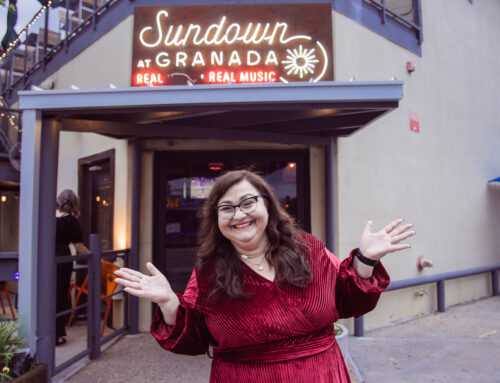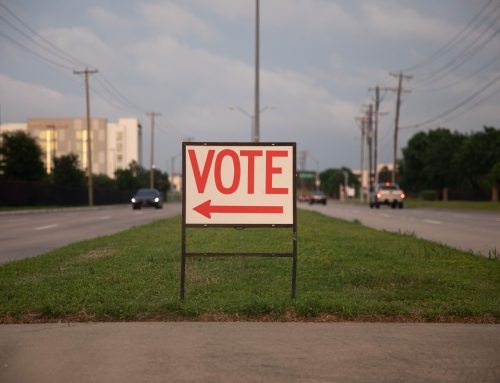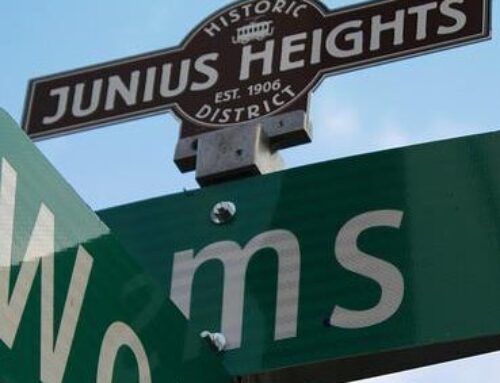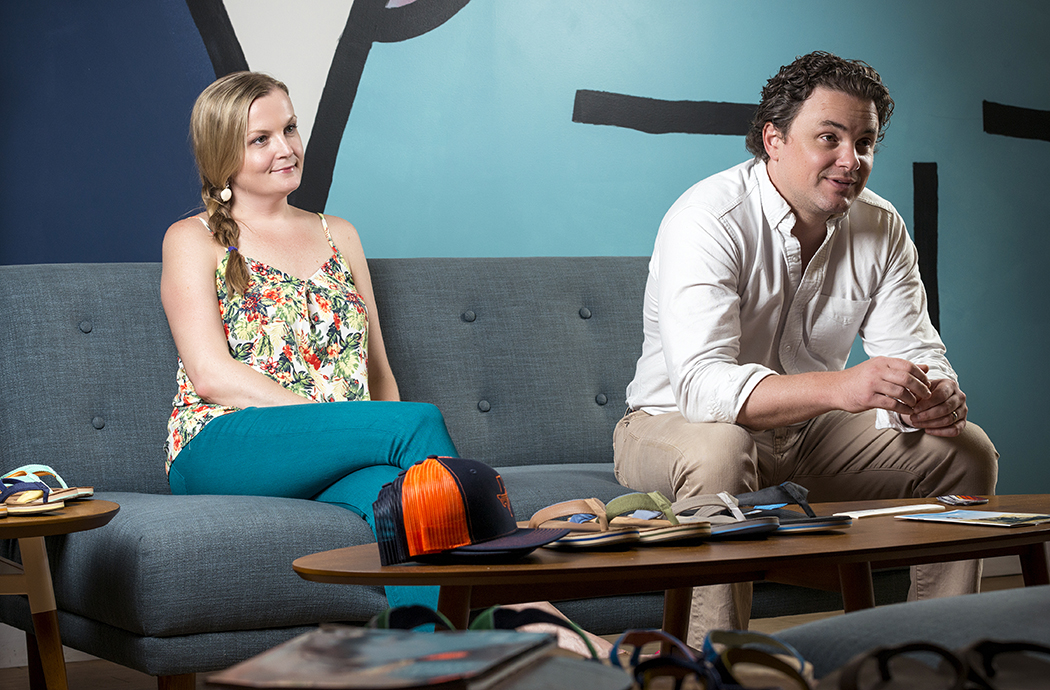
Lila and Jeremy Stewart have taken Hari Mari from their garage apartment to their East Dallas headquarters. (Photo by Danny Fulgencio)
Starting a flip-flop company 290 miles from the ocean might seem like a fool’s errand, but this Lakewood couple is on a mission to reinvent the sandal from our land-locked neighborhood.
Jeremy and Lila Stewart started Hari Mari in their garage apartment in 2011, but they took a circuitous route to become flip-flop experts with a headquarter right here in East Dallas.
Prior to Hari Mari, Jeremy worked on political campaigns and Lila worked in public relations. Jeremy’s work took him to Indonesia to make a film about malnutrition in children. About that same time, he asked Lila to marry him, and she made the move to be with him on the other side of the Pacific.
While abroad, Lila worked in an orphanage and with the American Women’s Foundation in the world’s largest Muslim country. She learned to live in a place where men and women are treated very differently.
“I was spit on and yelled at, but wasn’t concerned for my life. Maybe I should have been,” she says. “Women can only work if their husband or father says they can.”
It was one of many ways the couple was transformed by their experiences in Indonesia, where much of the population lives on less than one dollar a day.
“It was a challenge, and we had two totally different experiences,” Lila says. “What I was able to do was rewarding, and I will forever be thankful for experiencing that side of the world.”
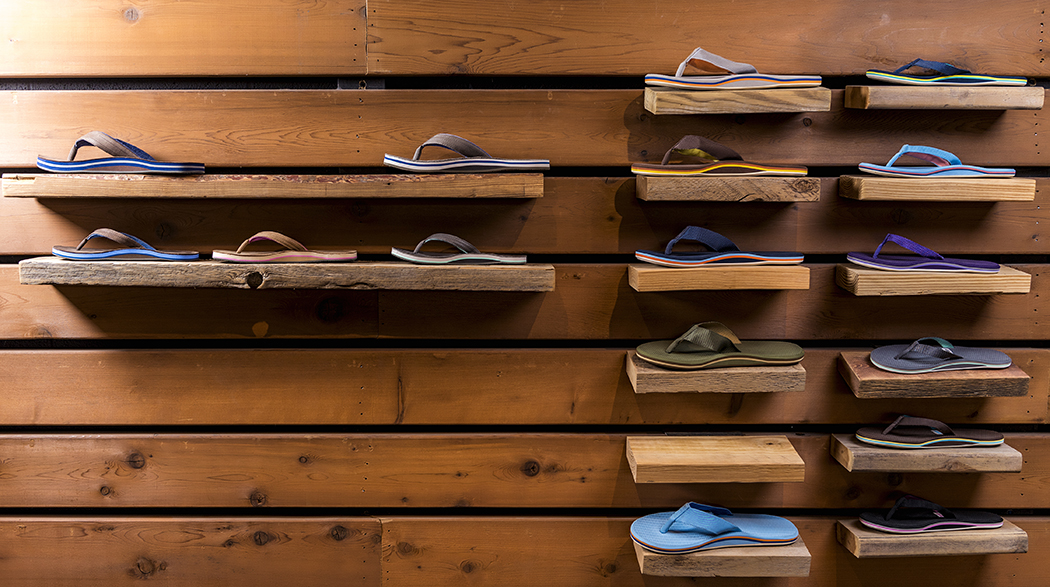
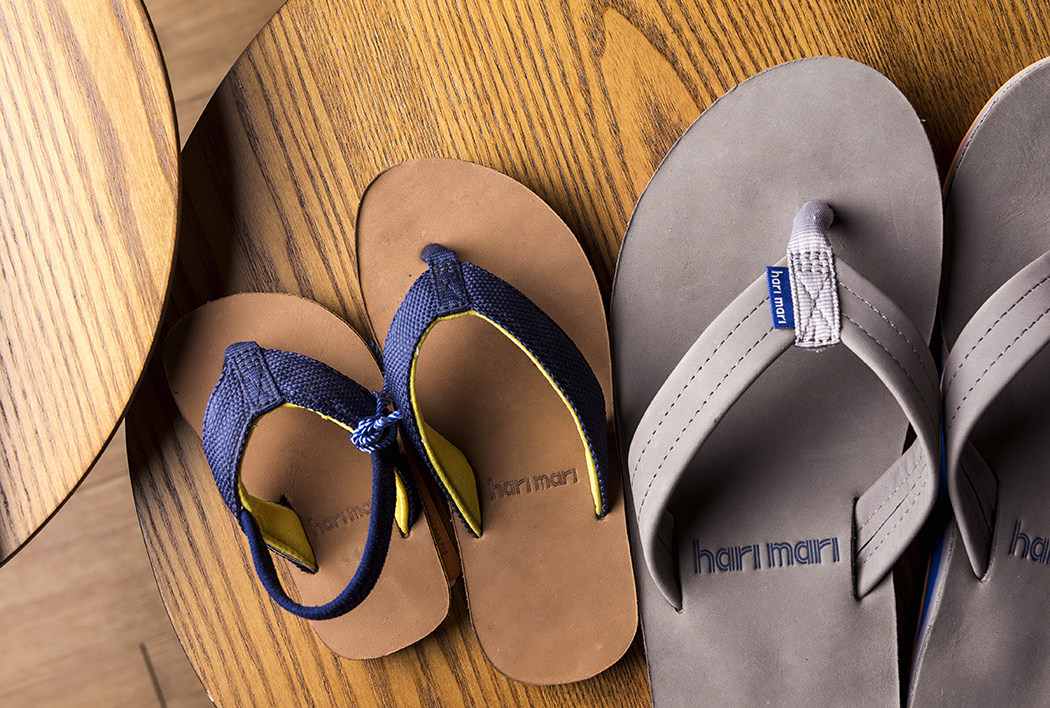
(Photos by Danny Fulgencio)
During their years on the tropical island, they became sandal aficionados. After returning to Lakewood, they decided to have a go at making a better flip-flop.
In their apartment, they cobbled together their favorite parts of all the flip-flops they had ever worn. Then they hashed out a business plan.
“Our friends laughed at us,” Jeremy says. “They thought it was the funniest thing ever. We had to put our money where our mouth was.”
With their Frankenstein flip-flop, they headed to China to find a manufacturer who could produce the sandal. Their design hinged on a more comfortable toe strap.
“Our biggest deal is that there is no break-in period,” says Jeremy, explaining that sandals should be comfortable from the moment you sink in your foot. “It baffles me it hasn’t been done before.”
They found it a challenge to be taken seriously as such a small operation, but were bullish on their sales. In 2012, they placed their first order for 25,000 pairsbefore selling a single sandal.
There was a lot to learn on the fly. They were set on breaking into a market that is crowded with established brands. Luckily, they have a good division of skills. Lila handles public relations and wholesale distribution, while Jeremy manages the design work and deals with online sales.
Despite growing 120 percent each of the last five years, Hari Mari is only just getting started, Jeremy says. “We haven’t even scratched the surface.”
They are banking on a growing trend that calls for more relaxed styles in the workplace. “It has been okay to wear flip flops to work for decades in California,” Lila says.
In addition to the workplace, they are targeting inland markets where sandals are traditionally less popular. They have started experimenting with niche products, such as their Nokona sandal, made from domestic leather in partnership with the baseball glove company. Eventually, they plan to grow beyond shoes into a lifestyle brand.
As for the name, Hari means “of the sun” in Indonesian, while Mari means of “of the sea” in Latin. Though there aren’t any oceans near their Haskell Avenue headquarters and showroom, this local company aims to have a positive impact, and not just on the sandal scene.
From the get go, they wanted their brand to stand for something. The couple partnered with children’s hospitals in Fort Worth and Austin to give 1 percent of all proceeds to support patients with pediatric cancer, a leading cause of death in American children.
Hari Mari can be found in 800 retailers worldwide, but in our neighborhood you can find them at Bullzerk, Tallulah & Hess, Lakewood Country Club and St. Bernard Sports. They can also be purchased at harimari.com.

